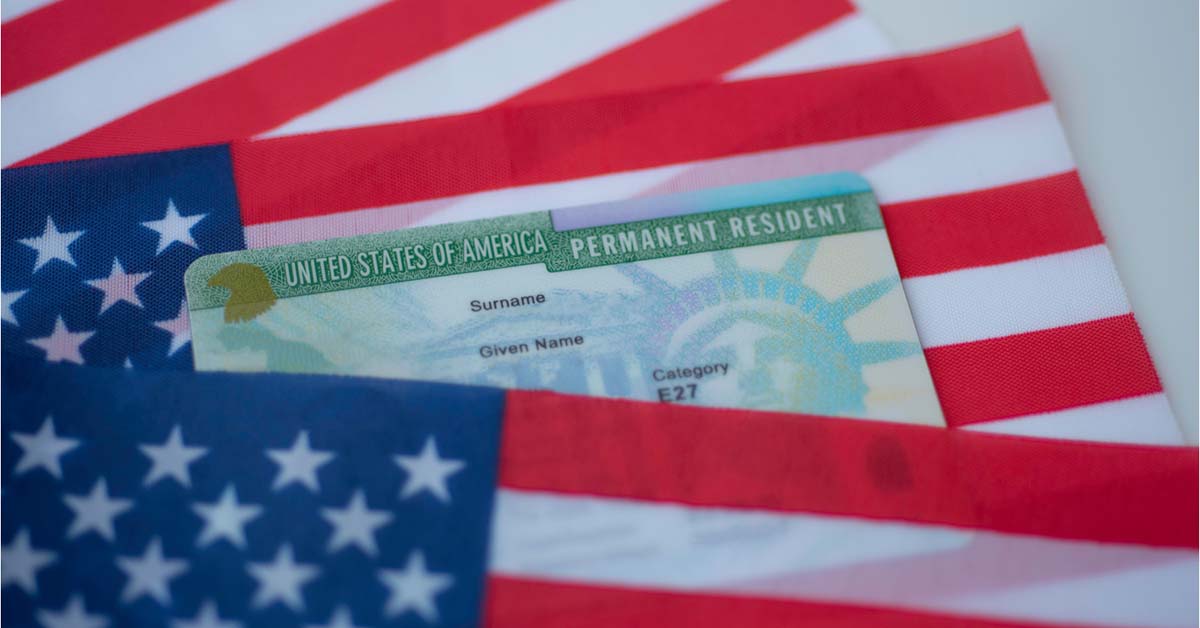
A criminal background check is an integral part of a green card application, used to determine the applicant’s admissibility. If you reside within the USA and want to adjust your status, you will undergo biometrics that reveals your arrest history. For those outside the USA, it’s a requirement that you submit a police certificate from your country with a detailed criminal record when applying for a green card. You might still get a green card despite having a criminal record, but this will depend on the nature of your crime. Here is everything you need to know.
Crimes Leading to Green Card Denial
Crimes of moral turpitude, those involving illegal drugs and aggravated felonies, might lead to green card denial. We have explained these crimes in detail below.
Aggravated Felony
Aggravated felonies are a broad category of crimes that makes someone inadmissible in the USA. An immigration judge may order you to leave the states if convicted of such crimes. After deportation, you will be permanently inadmissible to the USA. You can face a federal prison sentence if you try to return. Some of these crimes that fall under aggravated felony include:
• Kidnapping
• Offenses involving explosions and firearms
• Murder
• Sexual abuse
• Money laundering
• Filing false tax returns
Moral Turpitude
Moral turpitude refers to criminal offenses that violate the community’s acceptable standards. These are crimes committed with the intention to cause bodily harm. Criminal convictions that fall under moral turpitude include:
• Animal abuse
• Homicide
• Fraud
• Rape
In most circumstances, crimes like breaking, simple assault, and joy riding may not be considered moral turpitude. The best way to determine if your crime falls under this category is by consulting with an immigration attorney.
Drugs Violations
Crimes involving illegal drugs can make one ineligible to obtain a green card. This includes possession of illicit drugs like heroin, and cocaine, illegal drug use, and drug trafficking convictions.
USCIS recognizes differences between arrests, charges, and convictions. If you were arrested and questioned for an offense but released without charges, they wouldn’t hold anything against you. The same applies to those charged with a crime but proven innocent. On the other hand, a conviction means that the court found you guilty of a criminal offense. It can affect your admissibility.
During the green card application process, you will have to answer questions about any criminal convictions you have received. You will also undergo an interview that includes questions about your past. Answer the questions sincerely in both cases mentioning any arrests, charges, and convictions. If USCIS notices disparities between the application and interview answers, they might deny your petition. When you fail to note your convictions, USCIS may accuse you of immigration fraud.
Exceptions
People who have committed low-level crimes may still be eligible for green card approval. For instance, the government may pardon people with a single conviction for possessing 30g of marijuana or lower for personal use. If the green card applicant committed the crime while still a minor and is no longer in jail, they might qualify for an exception.
USCIS may also disregard some crimes involving moral turpitude if an individual served less than six months for the crime. Exceptions also apply to a person who committed petty offenses and five years have passed since the conviction. File for a waiver if you have committed minor crimes.
Getting a Waiver With the Help of an Immigration Attorney
Applying for a waiver is like seeking legal forgiveness of your crime. You will need to file Form I-601 if you are within the US. If you are outside the USA, begin the waiver application process before the immigration interview. It’s good to note that USCIS cannot excuse crimes like murder, drug convictions, or torture.
To qualify for a waiver, you must prove that your immigration into the states won’t put the country and its residents at risk. You also need to convince the government that your US-citizen spouse or relative will experience extreme hardship if you fail to move to the US. Getting a waiver is usually a highly complex process that requires the advice of an immigration attorney.
Find an Immigration Attorney
Talk to an immigration attorney before applying for a green card to assess the impact of your convictions on the immigration process. With over 30 years of experience, Nelson Immigration Law offers professional immigration services that minimize your risk of green card denial. Contact us to set up a consultation.
